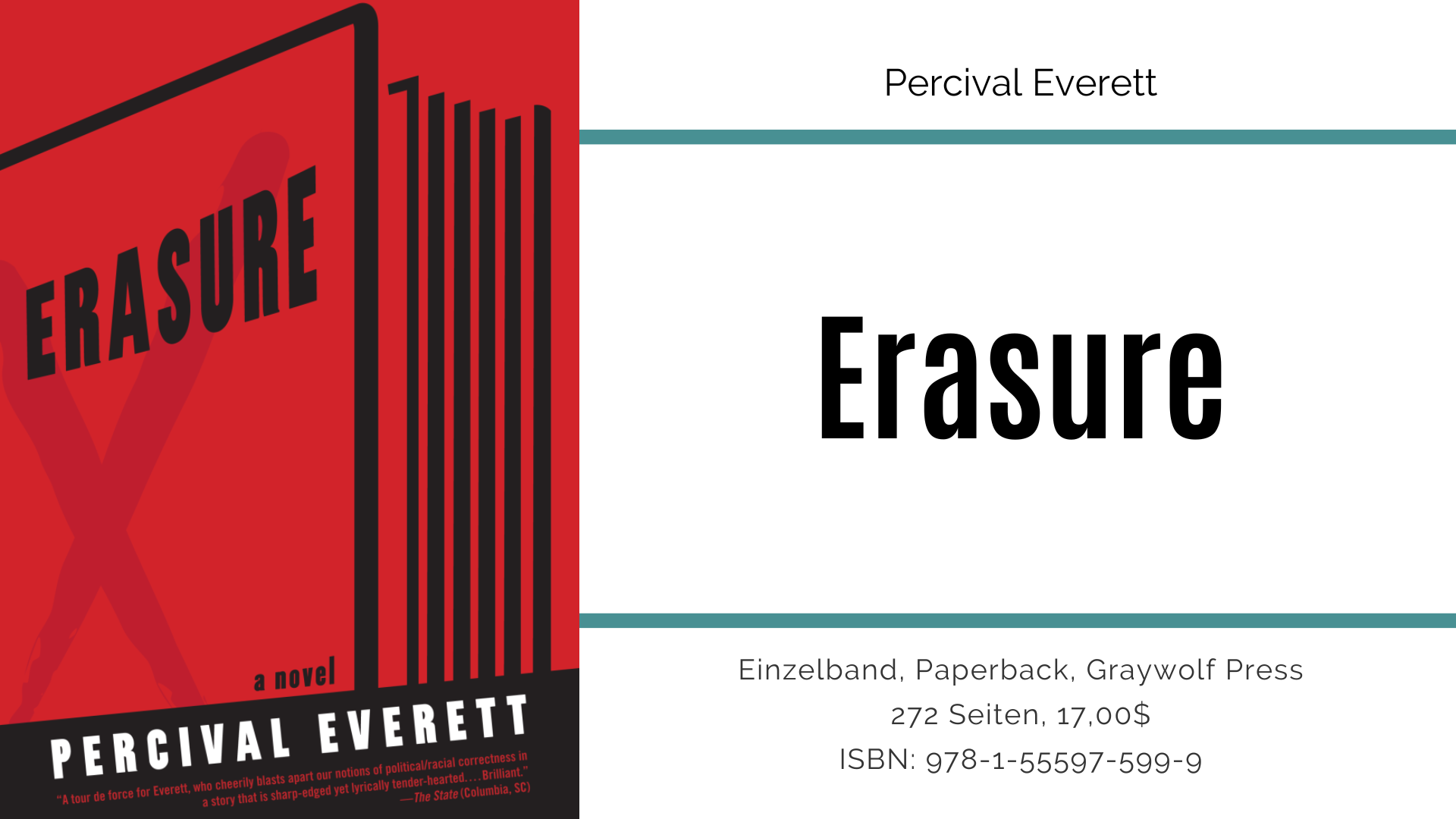Thelonious „Monk“ Ellison’s writing career has bottomed out: his latest manuscript has been rejected by seventeen publishers, which stings all the more because his previous novels have been „critically acclaimed.“ He seethes on the sidelines of the literary establishment as he watches the meteoric success of We’s Lives in Da Ghetto, a first novel by a woman who once visited „some relatives in Harlem for a couple of days.“ Meanwhile, Monk struggles with real family tragedies—his aged mother is fast succumbing to Alzheimer’s, and he still grapples with the reverberations of his father’s suicide seven years before.
In his rage and despair, Monk dashes off a novel meant to be an indictment of Juanita Mae Jenkins’s bestseller. He doesn’t intend for My Pafology to be published, let alone taken seriously, but it is—under the pseudonym Stagg R. Leigh—and soon it becomes the Next Big Thing. How Monk deals with the personal and professional fallout galvanizes this audacious, hysterical, and quietly devastating novel.
Another book I would have never read on my own
Starting a new course titled “Publishing,” we were assigned this book. While reading, we were supposed to look out for its opinion on the publishing business. And that surely is a complex and rather negatively one. Nonetheless, I personally enjoyed the presented family dynamics more than the critique of the business and the readership. The novel started quite slow for me, and it took me several chapters to get familiar with the protagonist and the writer’s style. By the end, I contrastingly had no problem reading 50 to 100 pages in one sitting.
About the concept that is race
The protagonist initially gives expression to his disbelief in the concept of race, which ultimately sets this story up to be about exactly that. Although the writer only inserts this issue a few times in the first third of the book, we get to experience the protagonist’s outrage about the importance of his assigned race to his success and life. A writer himself, he undertakes an experiment that will shape the rest of the whole book—writing a book. We therefore have a novel in a novel, which plays on a multitude of stereotypes so that even unexperienced readers will recognize the caricature that it is. The absurdity of this “novel” helps the writer in the following to impressively depict the publishing business’s prejudice and misconceptions. The author moreover brilliantly and humorously points to a writer’s decisions through snippets of imagined conversations between late artists. I especially loved the following:
Wilde: I’m afraid for the voice.
Joyce: What do you mean?
Wilde: The way writing is moving. All voice will soon be lost and what will we be left with?
Joyce: Pages.
Wilde: And story?
Joyce: What is story anyway? Just a way to announce the last page.
Wilde: Have you ever walked through a thunderstorm carrying a long metal pipe?
Joyce: No, I haven’t.
Wilde: You should try it. Joyce: Are you upset?
Wilde: No, just announcing the last page.
– page 165
A highly emotional journey
The book nonetheless does not solely focus on the publishing business and the protagonist’s actions within it. We get a complex family dynamic that intrigued me most from the beginning. The protagonist initially feels alienated from his family. Thus, I enjoyed his growing fondness of and loyalty to them. Even his relation to his brother gets more intense throughout the book. Nonetheless, I was hoping for a bit more closure on this issue. Within this dynamic, the writer deals with loss, illness, queerness, favoritism, and family secrets, which made this book highly compelling to me. These additional storylines add to the protagonist’s individual and context-influenced development.
In conclusion
This book started out slow for me but ended strong. Everett creates an intriguing dynamic between a writer’s integrity and their wish for success as much as (especially PoC’s) demanded bending to publishers’ and readers’ expectations. Moreover, we experienced a complex and moving family dynamics.

The author:
Percival Everett is the author of more than thirty books, most recently The Trees and Telephone, which was a finalist for the Pulitzer Prize. Source

